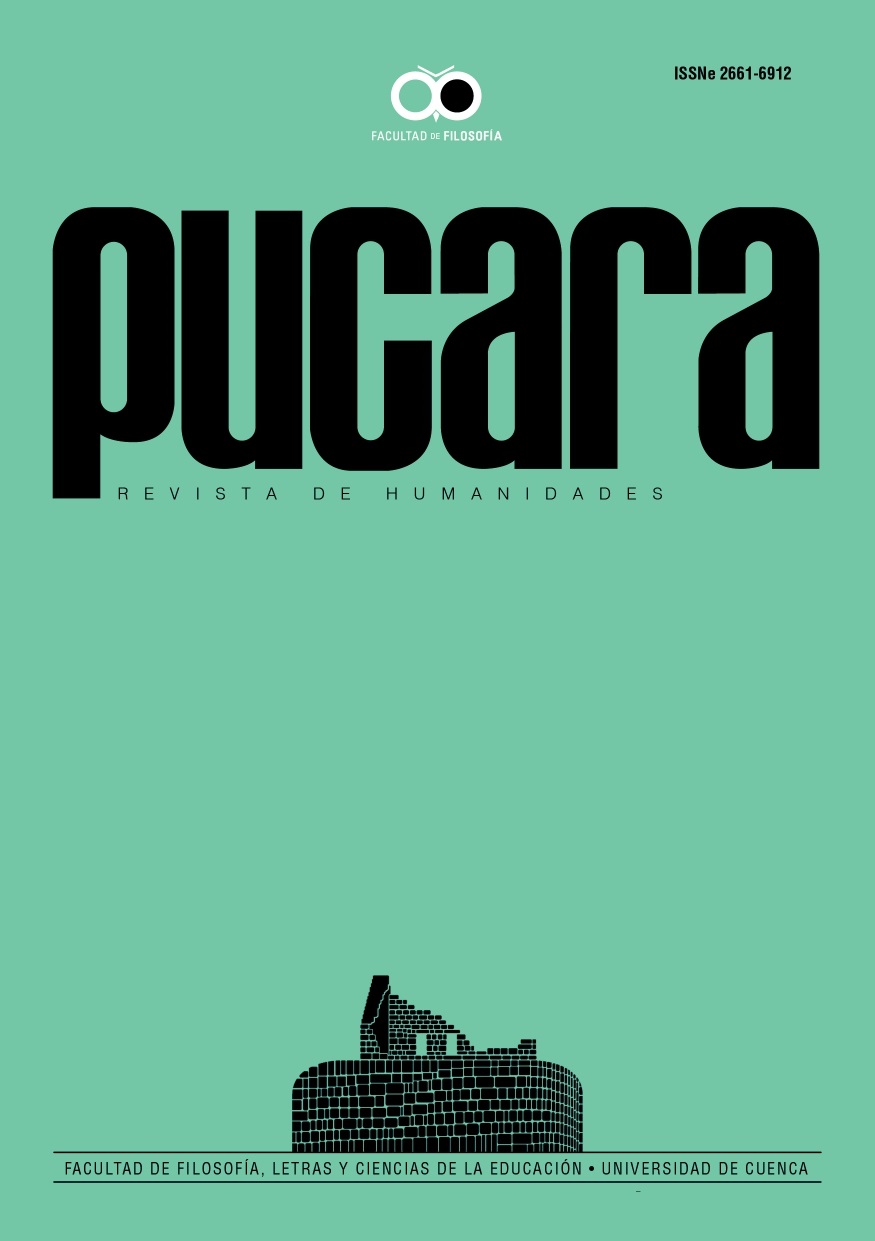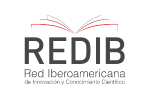La persistencia mítica de Cantuña
Un ensayo interpretativo a través de los estudios del imaginario
DOI:
https://doi.org/10.18537/puc.32.01.01Palabras clave:
Estudios del Imaginario, mitos fundacionales, pacto diabólico, Quito, CantuñaResumen
La construcción de la Iglesia de San Francisco en Quito, Ecuador (1534/1535-1680) ha adquirido una dimensión mítica en los imaginarios locales, especialmente destacada por una de las leyendas más conocidas y repetidas del país: la del indígena Cantuña y su pacto con el diablo. Este trabajo busca sus orígenes, teoriza sobre la importancia de los elementos míticos en el imaginario colectivo y su narrativa dentro del tejido social, y explora diferentes concepciones utilizadas en los estudios del imaginario para su abordaje. Para ello, se aproxima en primer lugar a las definiciones bioantropológicas para interpretar las imágenes arquetípicas universales (Durand); además, busca el análisis estructural de esta leyenda fundacional y la persistencia de ciertos elementos en el tiempo, así como sus relaciones e interacciones (Lacan). Finalmente, este trabajo propone una posible comprensión del mito y su persistencia como producto de la violencia y la culpabilidad (Girard) respecto al proceso colonial.
Descargas
Citas
Abella, S. I. S., & Raffaelli, R. (2012). As Estruturas Antropológicas do Imaginário de Gilbert Durand. Cadernos de Pesquisa
Interdisciplinares Em Ciencias Humanas, 13(102), 224-249. https://doi.org/10.5007/1984-8951.2012v13n102p224
Álvarez, C. (2015). Décès de René Girard. Mondes Francophones. https://mondesfrancophones.com/blog/annonces/deces-derene-girard/
Araújo, A. F., & Teixeira, M. C. S. (2009). Gilbert Durand e a pedagogia do imaginário. Letras de Hoje, v. 44, n., 7–13. http://revistaseletronicas.pucrs.br/ojs/index.php/fale/article/viewFile/6539/4746
Artieda Velástegui, R. E. (2015). Cantuña: discurso comunicacional, mutación, y refuncionalización en la creación de un héroe mítico. http://repositorio.uasb.edu.ec/handle/10644/4640
Ávila Santamaría, R. (2012). Los derechos y sus garantías: Ensayos críticos. Corte Constitucional para el Período de Transición / Centro de Estudios y Difusión del Derecho Constitucional (CEDEC). https://repositorio.uasb.edu.ec/bitstream/10644/6114/1/Avila, R-CON-012 Los derechos.PDF
Böcking, S. (2008). Suspension of disbelief. En The Sartre Dictionary (Vol. 44, Issue 5, p. 6). Continuum International Publishing
Group. https://doi.org/10.5040/9781350250321-0316
Cieza de León, P. de, Cook, A. P., Cook, N. D., & Jay I. Kislak Reference Collection (Library of Congress). (1998). The discovery and conquest of Peru : chronicles of the New World encounter. Duke: Duke University Press.
Da Silva, S. G., & Tehrani, J. J. (2016). Comparative phylogenetic analyses uncover the ancient roots of Indo-European folktales. Royal Society Open Science, 3(1), pp. 1-11. https://doi.org/10.1098/rsos.150645
De Santa Gertrudis, J. (2014). Maravillas de la naturaleza. Linkgua.
De Velasco, J. (1981). Historia del reino de Quito en la América meridional (A. Pareja Diezcanseco (ed.). Caracas: Biblioteca Ayacucho.
Durand, G. (1983). O imaginário literário e os conceitos operatórios da mitocrítica. En Mito e sociedade. A mitanálise e a sociologia das profundezas (pp. 25–39). Regra do Jogo.
Durand, G. (2000a). A Imaginação Simbólica. 70. México D.F.: Fondo de Cultura Económica.
Durand, G. (2000b). La imaginación simbólica. Amorrortu. México D.F.: Fondo de Cultura Económica.
Durand, G. (2004). Las Estructuras Antropológicas del Imaginario. México D.F.: Fondo de Cultura Económica.
Eco, H. (1978). O signo. Presença.
Eduardo, C., & Queiroz, J. (2016). Uma investigação dos conceitos do imaginário e do simbólico no tocante ao processo de recepção
literária. A Palo Seco, 8, 26–38. https://seer.ufs.br/index.php/apaloseco/article/download/6316/pdf
Estrella, U. (2001). Digo, mundo... crónica de sueños. Quito: Libresa.
Girard, R. (2014). La Violence et le Sacré. Bernard Grasset.
Grimm, J., & Grimm, W. (1812). Der Schmidt und der Teufel. En Kinder- und Hausmärchen (Vol. 1, pp. 360–364).
Realschulbuchhandlung.
Jáuregui, C. A. (2012). “¿Cómo quitar el poder destas gentes?” Las Casas al Teatro, los indios a la Corte y la Justicia al diablo.
En D. Solodkow (Ed.), Perspectivas sobre el Renacimiento y el Barroco (pp. 43–93). Universidad de los Andes & Siglo del
Hombre Editores.
Jung, C. G. (2002). Os Arquétipos e o inconsciente coletivo. Vozes.
Jung, C. G. (2010). Los arquetipos y lo inconsciente colectivo. Trotta.
Jung, C. G., Franz, M. Von, Henderson, J., Jacobi, J., & Jaffé, A. (1964). O homem e seus símbolos; 6 ed. Nova Fronteira.
Lacan, J. (1984). El seminario. Libro 3. La Psicosis. Buenos Aires: Paidós.
Lacan, J. (1998). O estádio do espelho como formador da função do eu. En Escritos (pp. 96-103). Zahar.
Lavallé, B., & Lavallé, B. (2005). Francisco Pizarro : biografía de una conquista. Instituto Francés de Etudios Andinos.
Lévi-Strauss, C. (1987). Antropología estructural. Barcelona: Paidós.
Lyotard, J.-F. (1989). A condição pós-moderna. Gradiva.
MacQuarrie, K., & MacQuarrie, K. (2007). The last days of the Incas. Nueva York: Simon & Schuster.
Martins, M. de L. (2014). Os mitos de origem no Salazarismo - O passado como se fora presente. En Europa Nacionalidades (pp.
–191). Grácio. http://hdl.handle.net/1822/40121
Miller, J.-A. (1988). Percurso de Lacan. En Conferencias Caraquenhas (pp. 11-26). ZAHAR.
Miller, J.-A. (2015). Seminarios en Caracas y Bogotá. Paidós.
Moraña, M. (2019). Humanismo y biopolítica. Monstruos en el parque humano. A propósito de Peter Sloterdijk. Revista Letral, 21, 24–
https://doi.org/http://dx.doi.org/10.30827/RL.v0i21.8108
Pazmio, D. (2015). Cantuña: La leyenda animada. YouTube. https://www.youtube.com/watch?v=abk2-LkjrTA
Peres Mendes, V. L. (2016). O Mandarim de Eça de Quierós; Uma adaptação ao Romance Gráfico. Universidade do Minho.
Ricoeur, P. (1999). Historia y narratividad. 5. ed. Barcelona: Paidós Ibérica.
Soazo Ahumada, C. (2017). Mesianismo y ethos barroco : figuras críticas para la resistencia y reexistencia cultural latinoamericana
Mesianism and baroque ethos : critical figures for Latin American cultural resistance and re-existence. Estudios Avanzados, 26, 19-43.
Souza, A. A. T., & Rocha, Z. J. B. (2009). No princípio era o mythos:articulações entre Mito, Psicanálise e Linguagem. Estudos de
Psicologia (Natal), 14(3), 199–206. https://doi.org/10.1590/S1413-294X2009000300003
Stam, R. (2005). Introduction: The Theory and Practice of Adaptation. En R. Stam & A. Raengo (Eds.), Literature and Film: A guide to
the Theory and Practice of Film Adaptation (p. 360). Backwell.
Verdi Webster, S. (2010). The Devil and the Dolorosa: History and Legend in Quito’s Capilla de Cantuña. The Americas, 67(1), 1–30. https://doi.org/10.1353/tam.0.0295
Vierne, S. (1979). MITOCRÍTICA E MITANÁLISE. Íris, 13, 43-56.
Vilhena Vieira, O. (2007). La desigualdad y la subversión del Estado de Derecho. Sur - Revista Internacional de Derechos Humanos,
(6), 29-51.
Zupančič, A. (2014). The sexual and ontology. En Filozofija i Društvo, Vol 25, Iss 1, Pp 183-192 (2014) (Vol. 25, Issue 1, pp. 183–192).
Publicado
Cómo citar
Número
Sección
Licencia
Derechos de autor 2021 Jorge Fabara Espín

Esta obra está bajo una licencia internacional Creative Commons Atribución-NoComercial-CompartirIgual 4.0.
Copyright © Autors

Usted es libre de:
 |
Compartir — compartir y redistribuir el material publicado en cualquier medio o formato. |
 |
Adaptar — combinar, transformar y construir sobre el material para cualquier propósito, incluso comercialmente. |
Bajo las siguientes condiciones:
 |
Atribución — Debe otorgar el crédito correspondiente, proporcionar un enlace a la licencia e indicar si se realizaron cambios. Puede hacerlo de cualquier manera razonable, pero de ninguna manera que sugiera que el licenciador lo respalda a usted o a su uso. |
| No comercial — No puede utilizar el material con fines comerciales. | |
| Compartir Igual— si remezcla, transforma o desarrolla el material, debe distribuir sus contribuciones bajo la misma licencia que el original. |
| Sin restricciones adicionales: no puede aplicar términos legales o medidas tecnológicas que restrinjan legalmente a otros a hacer cualquier cosa que permita la licencia. |
Mayor información sobre este acuerdo de autoría y licencia, transferencia de derechos o solicitudes de reproducción, pueden ser consultados en este enlace.












